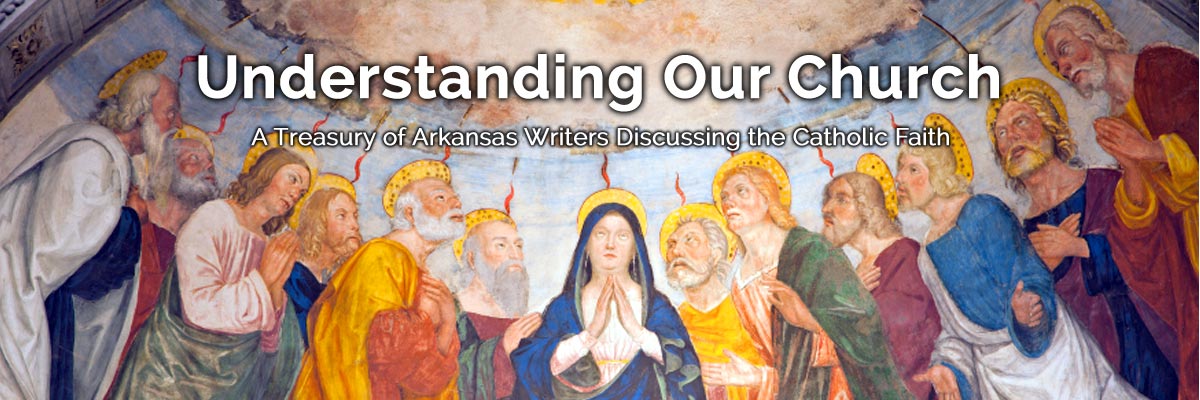Official Website of the
Catholic Diocese of Little Rock
Nativity of Mary affirms life at conception
Published: September 8, 2018
By Deacon Matthew Glover
Chancellor for Canonical Affairs
There’s a scene early on in the poignant film “Dead Poets Society,” where Mr. Keating (played by the inestimable Robin Williams) challenges his students, in an urgent whisper, to make the most out of their short lives here on earth: “Carpe diem. Seize the day, boys. Make your lives extraordinary!”
It’s easy to forget just how short our time on this earth really is. But for us Christians, we have the hope that our lives have an eternal meaning, some eternal purpose in God’s eternal plan.
That’s why it baffles me when politicians, ethicists and others say things like, “I believe (or don’t believe) that life begins at conception.” Belief really has nothing to do with it — it’s simply a scientific fact that human life begins at the moment of conception.
On Sept. 8, we celebrate the birthday of someone who was literally preserved from original sin because of her purpose in God’s plan: the Blessed Virgin Mary. Some may wonder why this particular feast day gets plopped in the middle of September. The simple answer is: because Sept. 8 is exactly nine months from the date we celebrate Mary’s Immaculate Conception, Dec. 8.
This feast day also reminds us of the precious mystery that is human life. I say “mystery” not because we don’t know whether a child in the womb is in fact a human life. The developments of modern science have demonstrated that at the very moment of conception, there is all the genetic material of a newly-formed human being — i.e., that human life begins at conception. This is not a matter of belief, but of scientific fact.
That’s why it baffles me when politicians, ethicists and others say things like, “I believe (or don’t believe) that life begins at conception.” Belief really has nothing to do with it — it’s simply a scientific fact that human life begins at the moment of conception.
No, the mystery of human life isn’t “When does life begin?” but “Why do I exist rather than someone else?” Why was I conceived, when someone very different could have existed had my parents conceived a month earlier or later?
When Mary was conceived, her parents couldn’t have possibly imagined what her future would hold. When she was born, her parents had no idea that their daughter would one day become the bearer of God incarnate.
But what they did know during those nine precious months in between conception and birth, was that God had given them a unique, one-of-a-kind, immeasurable gift: a new human life, whose role and purpose in God’s salvific plan was known only to him.
We are all living in a post-incarnation age. God’s plan of salvation has already come to fulfillment in the life, death and resurrection of Jesus Christ. But that doesn’t mean that God’s work in this world is done.
God still has a plan to build his kingdom in every part of our city, in every part of our state and country, in every part of the world. But God can only do that through you and me — we are Christ’s hands and feet, eyes and ears, mind and heart in this world.
We may not have as lofty a role as did Mary, whose birthday we celebrate this week. But that doesn’t mean we don’t have a part to play.
Liturgical feast days like the nativity of Mary are an opportunity to honor the Blessed Virgin and reflect on the sanctity of human life in the womb. But they’re also an opportunity to reflect on our own lives, the miracle of life itself, the miracle of just being born into this world. Your part may not seem like much, but in God’s design you have some role to play and are infinitely meaningful.
Robin Williams’s character, Mr. Keating, encouraged his students to embrace the struggle of discerning their dreams, their passions, their purpose in life. He quoted the poet Walt Whitman’s own questioning of the meaning of life. Whitman’s answer: “That the powerful play goes on, and you may contribute a verse.” As Mr. Keating then challenged his students, “What will your verse be?”




